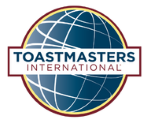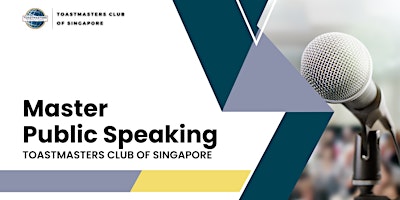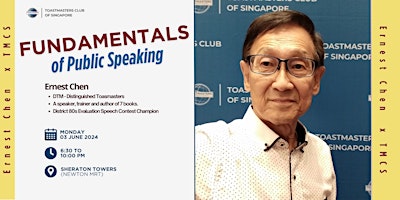 The three brothers, John, Robert and Edward have captured the political scene in Washington, starting from John and Robert in the sixties and Edward carried on till 2009, The three of them had campaigned for the top post in United States of America, one after another, only John had succeeded.
The three brothers, John, Robert and Edward have captured the political scene in Washington, starting from John and Robert in the sixties and Edward carried on till 2009, The three of them had campaigned for the top post in United States of America, one after another, only John had succeeded.
The young president, John F. Kennedy, who won the White House in 1960 and was killed by an assassin in 1963, his brother, Robert F. Kennedy, the attorney general and charismatic candidate for president until another assassin stopped him on the campaign trail in 1968, and the brother, Edward M. Kennedy, elected to the Senate in 1962 and who made his own failing bids for a presidential nomination, his remarkable swan song was delivered on 12 August 1980.
“Before John F. Kennedy entered the political scene, no politician had ever seemed so comfortable–so himself–in front of television cameras,” MSNBC notes. “While politicians of the past were forever frozen in black and white photos, the Kennedy brothers were a crisp colour image. ”
The first two brothers were taken by unspeakable violence. The third, 77, was battling brain cancer, a disease that had sidelined him at a time when one of the causes of his era – health-care reform – was mired in a stumbling Washington debate which even Republican Sen. John McCain had acknowledged was poorer for Kennedy’s absence. Edward died on 25 August 2009.
There is a striking similarity in their speaking style and their speeches. Though John F Kennedy, being the eldest and elected as President of the USA, led the way in speech making, the other two Kennedy brothers soon learned and held their own, rendering scintillating speeches.
I have selected one speech from each Kennedy and analyse the style and the language used in the speech.
John F Kennedy – Inaugural Address- 20 January 1961
In the introduction, when he said, “We observed today not a victory of party, but a celebration of freedom – symbolizing an end, as well as beginning – signifying renewal, as well as change.”
Immediately we notice the rhetorical device – antithesis is being used to highlight the difference, the opposite effect. The word –“freedom” is the key word of this speech. It has been used many times. In using three sets of antithesis, JFK also applied the tricolon or triad, the power of three effectively. Other antithesis in the speech include:
- “well or ill”
- “war …. peace”
- “problems unite us …those problems divide us.”
- “final success or failure…”
JFK liked to use contrast in the form of “not this … but that…” Like the following: “…not from the generosity of the state, but from the hands of God.” Other examples:
- ”not because we seek their votes, but because it is right.”
- “we offer not a pledge but a request.”
- “not a new balance of power, but a new world of law.”
- “All this will not be finished in ……..But let us begin.”
- “not as a call to bear arms,………..but a call to bear ……….”
- “ask not what America ……..but what together……..”
JFK applied figure of repetitions effectively. Examples like:
- “all forms of human poverty and all forms of human life.”
- “….to which this nation has always been committed, and to which we are committed today…….”
- “to help them help themselves”
- “to convert our good words into good deeds”
- “to assist free men and free governments …..”
- “…..where the instruments of war have far outpaced the instruments of peace,”
- “…sufficient beyond doubt can we be certain beyond doubt that….”
- “…what problems unite us …….those problems which divide us.”
- “…bring the absolute power to destroy……under the absolute control of all nations.”
- “….to bear arms, though arms we need – not as a call to battle, though embattled we are…”
- “year in and year out.”
In the closing, JFK appealed to all with the word – “ask” – he used this word five times, the last one is “asking”
There are many Anapora – repetition of a word, phrase or clause at the beginning of a sentence, or clause that JFK used.
There is no shortage of alliteration in the speech. Examples are:
- “forebears fought, friend and foe, colonial control, strongly supporting, grand and global, to lead the land we love.”
- “Never have I seen so many quotable quotes appeared in a speech like this one.”
- “United there is little we cannot do. Divided there is little we can do.”
- “If a free society cannot help the many who are poor, it cannot save the few who are rich.”
- “Civility is not a sign of weakness, and sincerity is always subject to proof.”
- “Let us never negotiate out of fear, but let us never fear to negotiate.”
Finally the most famous quote of all, “ask not what your country can do for you; ask what you can do for your country.”
By the way, the latter quote is known as antimetabole.
The address is 1364 words and took about 13 minutes to deliver, from the first word to the last word, not including applause at the end, making it the fourth-shortest inaugural address ever delivered.
John F Kennedy was a great speaker and certainly an excellent writer, according to his speech writer Theodore Sorensen. Though Sorensen wrote many of John Kennedy’s speeches, but many of the key ideas and words were from Kennedy.
Want to learn how to write persuasive speeches like John F Kennedy?
Or do you want to know the proper techniques of public speaking, the tricks and tips to easily changing your style of delivery according to the times and needs of your listeners?
Every speaker is different, so is your audience. Great public speakers not only know how to tell wonderful and convincing stories, they are also great artist in painting images into the hearts of their listeners. And they precisely know how to adjust their speaking styles to suit their audience from different cultures and nations.
In his book, Earnestly Speaking, Ernest will show you how you can hone your public speaking skills to aid your progress in both your professional and personal life.
Earnestly Speaking is the child of Singapore’s best public speaking coach, Ernest Chen. In his book of twenty independent chapters, Ernest will hold you by your hand and walk you through the six different aspects of public speaking -ranging from preparing your speech, deciding on the most appropriate type of speech to deliver to your audience to the different modes of communication and more….
To start your dream of becoming a persuasive and entertaining public speaking without having butterflies in your stomach, visit your local bookstore and get Ernest’s public speaking bestseller, Earnestly Speaking today!







